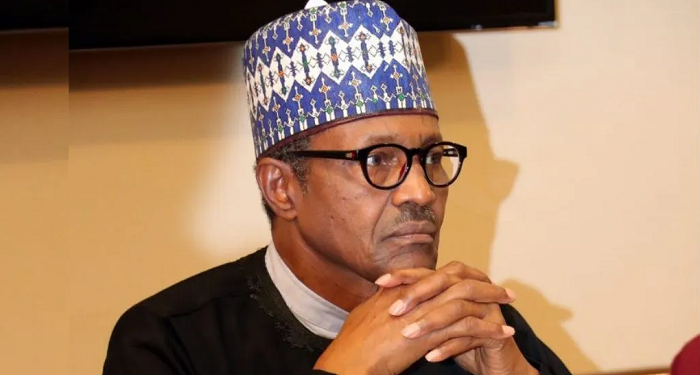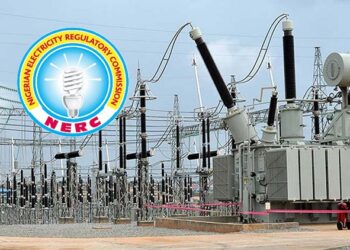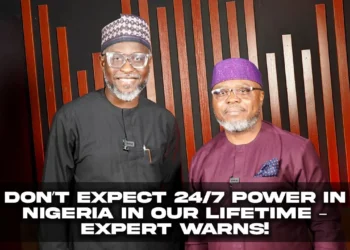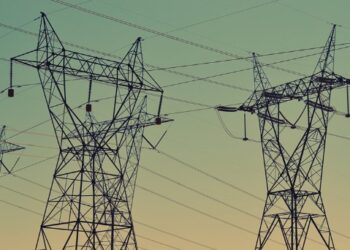Key highlights
- President Buhari has approved a constitutional amendment allowing states to generate, distribute and transmit electricity
- This article highlights several impacts that this amendment could have on the country’s power supply output as well as other aspects of the value chain
- According to experts, the constitutional amendment will enable the decentralization of power and even influence the rise of regional electricity systems.
- Experts approve of the amendment, however, there is a small aspect of the policy that still needs to be addressed.
Last week, President Buhari signed into law, a constitutional amendment that allows states across the country to license, generate, transmit, and distribute electricity.
On March 17, the Special Assistant to the President on New Media, Tolu Ogunlesi via Twitter, said:
- “By virtue of the presidential assent, Nigerian states can now generate, transmit, and distribute electricity in areas that were not covered by the national grid, pre-amendment. This is genuine, realistic restructuring through the constitution.”
Nairametrics spoke to several stakeholders in Nigeria’s power sector to make sense of this amendment as it affects business, states internally generated revenues, prepaid metering for households and businesses as well as how the amendment will impact distribution companies (DISCOs).
Understanding the amendment
As states have been granted the power to generate, distribute and transmit electricity, all states will be allowed to develop their electricity market frameworks which will be specific to their capacity and realities.
Nigerian Electricity Market Lawyer, Ivie Ehanmo told Nairametrics that as electricity markets advance within states, with commensurate improvements to the current grid bottlenecks on a national scale, the decentralized electricity market structure affords the opportunity for states to sell power to the grid. She also highlighted the following:
- Residents will be able to undertake transactive energy, whereby producers and users of energy are able to transact with each other directly.
- Decentralization of the electricity market will allow for better accountability and transparency and will promote and foster competition in the market which will in the long run influence electricity tariffs toward a downward trajectory.
Decreased pressure on the national grid
Ivie Ehanmo told Nairametrics that a decentralized structure will decrease pressure on the grid and allow for cheaper power to be supplied to vulnerable and life-line customers in unserved and underserved areas. According to Ehanmo, this will promote grid flexibility and reduction in grid expansion costs. In addition, the amendment will allow states to expand and explore their available energy mixes to undertake adequate system planning and demand forecasting,
- Using Lagos state as a case study: Lagos intends to deploy and utilize off-grid solutions (OGS) to electrify unserved and underserved areas via the use of clean energy products. This will create room for the state to deploy carbon pricing mechanisms, particularly carbon offsetting, by trading the clean energy attributes of electricity generated from renewable energy sources, thus earning revenue for the State, improving the living conditions of residents within the State, and supporting the country in meeting global climate change obligations.
Improvement of socioeconomic status of states
Power sector analyst, Bayode Akomolafe believes that the amendment means a new level of accountability and responsibility for state governments. He says each state government has the tool and power to improve the socioeconomic status of their state through the deployment of energy resources as seen fit. Akomolafe told Nairametrics:
- “I see this as a beginning of a gradual devolution of power from the central government to the state government. The state government will need to start building internal capacity for a regulatory framework, policies, and infrastructure to improve electricity resource development. This can be achieved through the engagement of sectoral experts, the private sector, national organizations and transnational networks for technical and non-technical support and development.
- “State governments now have the power to utilize the electricity resources in their state for electricity generation subject to the approval of the Nigerian Electricity Regulation Commission (NERC) and other relevant federal agencies.”
The Chief Executive Officer, of Revive Earth, Chukwuemeka George Eze, told Nairametrics that the policy amendment means more internally generated revenue (IGR) for states, which is a great opportunity to diversify their power generation and distribution, and a more reliable supply network. He said:
- “It will also mean the need to enact more stringent policies to regulate discos and other independent players/investors that would come in. This could be achieved through regulating costs and safety standards, as well as creating the enabling environment for the investors such as land allocation.”
Opportunity for distribution companies (DISCOs) to improve capacity
The amendment creates an opportunity for DISCOs to improve capacity and increase revenue flow if suitable strategies are deployed and new growth plans are implemented. Akomolafe told Nairametrics that this also means the regional monopoly of DISCOs will end as new state players will emerge. This resulting competition will provide consumers with options which is a panacea for improved service delivery.
Akomolafe says he foresees a collaboration with smaller players, as the state players can leverage DISCO’s existing technical and commercial infrastructure and capacity for accelerated growth. According to Akomolafe, the amendment also affects power-generating companies (GENCOs) as it affects DISCOs. So, GENCOs can build a state entity for the development of generation facilities at the state level or partner with smaller players.
Increased investments in prepaid meters
Odion Omonfoman, the Chief Executive Officer, of New Hampshire Capital Limited, told Nairametrics that the amendment will create opportunities for increased investments in metering. According to him, the amendment means that states now have the right to make electricity and can set up their electricity DISCOs and transmission infrastructure operating side by side with existing infrastructure. He said the amendment will bring about investments into state grids and increased investments in metering.
This is because end-user customers will need prepaid meters when there is an increase in state electricity market penetration. He pointed out the fact that successor DISCOs are already dealing with inherited metering gaps. Meanwhile, state DISCOs may not because the Electric Power Sector Reform Act (EPRA) requires new connections to be metered, so states will find it easy to meter their consumers because they have no backlog, unlike successor DISCOs.
Impact on Power supply
According to Power sector analyst, Bayode Akomolafe, the amendment will have three likely impacts on Nigeria’s power supply. These are:
- An increase in participation of the private sector in the Nigerian Electricity Supply Industry (NESI), means significant growth in Foreign direct investment (FDI) to the sector. The state governments can also now independently source funding for the development of electricity resources and shore up additional investment into the NESI which can positively impact the system.
- There will be regional players which will toughen competition in the electricity space in Nigeria which typically will provide an avenue good for service delivery and cost as end-users will now have options.
- There will be a decongestion of the central electricity system (national grid). With the development of regional electricity systems, some customers will move to regional players. This will free up more resources on the central national grid for improved service while the federal government and national players continue to deepen capacity on the national front.
A policy hiccup: However, Omonfoman notes that there are regulatory uncertainties that need to be cleared up. In Omonfoman’s opinion, stakeholders in the power sector players like the Nigeria Electricity Regulatory Commission (NERC), National Assembly, Federal Ministry of Power, and all states need to chart a path as to how both the state and federal electricity markets will co-exist.
He says there should be a framework for Nigeria’s new electricity market and the linkages between both state and federal. The framework will address the extent of NERC’s power, the extent of the power of the state governments and those who oversee monitoring standards and customer complaints. Omonfoman told Nairametrics that it will be better if the regulatory uncertainties are cleared up before the emergence of the tenth National Assembly.























